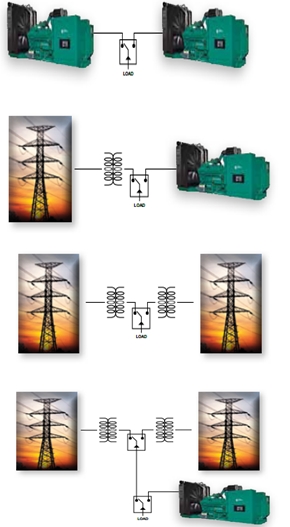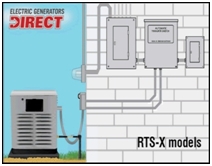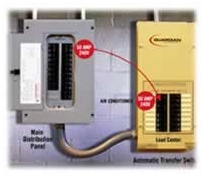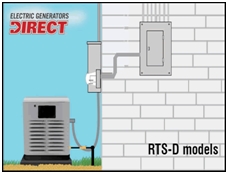Today Nasir’s sent us the 4th part of his tutorial on Transfer Switches. Let’s read!
An automatic transfer switch switches the power between grid and backup sources automatically without human intervention. It wouldn’t be vague to say that a backup generator is totally useless without automatic switching sources these days.
They are much like voltage monitors that monitor incoming power much like a thermostat and a soon as the power level falls below certain threshold specified by the user it turns on the backup power.
They are mostly used to switch between:
- One generator to another: Systems that use multiple generators as the prime power source.
- Utility power to generator: These including facilities that have both utility and income power and uses generators for backup only.
- One utility power to another utility power: Systems operating utility feeds on both ends. These systems can operate with manual switches as well.
- A three way system including all above: These systems combine two utility sources and one backup generator for sensitive areas like jails and military bases.
These are mostly referred as dual stand by systems having two backup and over all three power sources.
Operation
Automatic transfer switch includes a network of relays and solid state devices that are installed to monitor and control the incoming voltage.
Automatic transfer switch acts as a monitor as long as the incoming power is smooth and above a specified level. As soon as the voltage falls it is sensed by SSR devices and generates a signal to start the generator.
It then performs its second duty i.e. to isolate the grid power from the backup generator.
Isolation
The isolation is provided using opto couplers or solid state relays. The generator remains on and its output is monitored so as to reach a specified level.
As soon as that level is reached the switch turns off the utility power and transfers the load to the backup power.
Grid power control
The switch continues to observe the grid power that was either completely out or fell below a level.
If it is back in working mode the switch turns off the generator and waits for the power to attain a certain level as soon as that level is attained the control is shifted back again and generator is again held on standby mode.
These all things happen very quickly in a matter of micro seconds and the user don’t even feel any voltage variation or spike.
Types of automatic transfer switches
Sam working principle yet different ways of use introduce different varieties of these switches.
- Standard Switches: These switches are vintage type and are not used nowadays however some people still prefer them.
They are installed with sub panels and a lot of installation work is required. They have been replaced by modern switches that do not require much pre installation and are not easy to use.
- Load Centers: Load centers are typically not used for homes as they combine just a switch and some relays.
They may not be ideal for home circuitry and are typically used foe air-conditioning and large chillers.
They are used for multiple circuits and can accommodate 16 inbound circuits and will only power those keeping the rest if there are any without power.
- Service Disconnect: These switches are used when there is a need of powering the entire circuitry and non are to be kept un-excited.
They can handle a lot of circuits and are used mostly in large buildings and commercials zones.
They are installed between main incoming power meter and the main electrical panel. They are easiest of the switches to install and use.
Protection
They must be used whenever transfer of power is needed as they protect:
- Your home
- Your generator
- And most importantly the worker
That’s all for today, in the coming we will have a look on the open transition transfer switch in detail.
It’s a type of automatic transfer switch, as mentioned above, and in the next post we will check its operation in detail.
Nasir.



